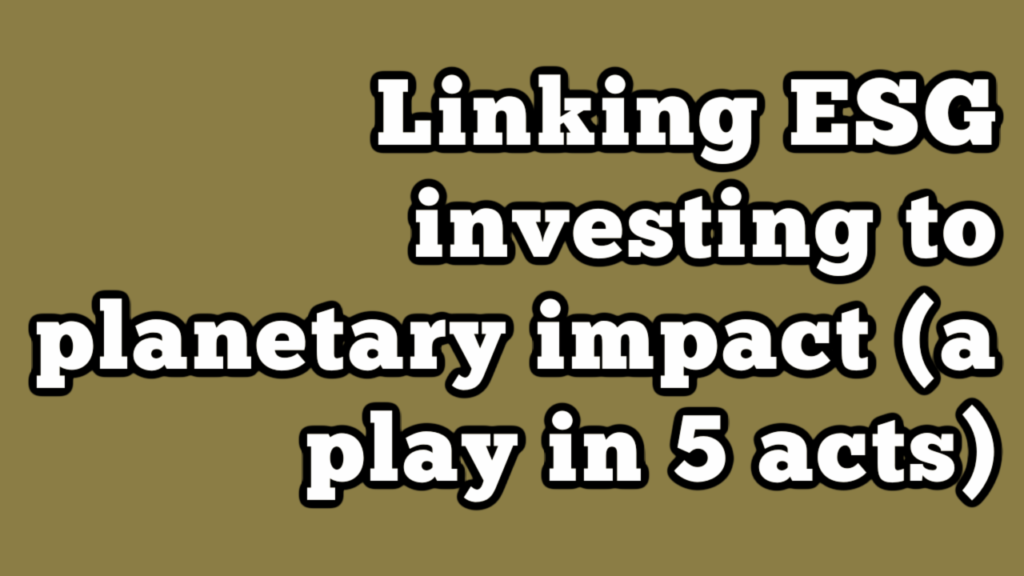Linking ESG investing to planetary impact (a play in 5 acts)

There’s been an ongoing debate about whether all of this ESG investing is really moving the needle much in terms of what we need to do to limit climate change. This Institutional Investor piece – entitled “The Trillion-Dollar Fantasy” – by Ken Pucker is opening a lot of minds. This note from Florian Heeb is a nice teaser for it:
Investors are finally taking ESG investment seriously. But as currently practiced, most ESG investing delivers little to no social or environmental impact.” Institutional Investor has just published an interesting thought-piece by Ken Pucker, structuring the current state of sustainable investing as a theater play in five acts. The big question: Will it end as a drama? Or are we heading towards a happy end?
The final acts, according to Ken: “Act IV: Investors and others slowly recognize that ESG investing, as currently practiced, will not likely lead to financial outperformance and is mostly unconcerned with planetary impact. Act V: Reawakening to the opportunities and limits of investing to address growing social and environmental challenges.”
The last act sounds hopeful to me. While the article is thorough and critical, it also offers a constructive perspective:
“Investors seeking ESG impact would be wise to ask asset managers three simple questions to determine the likelihood that a fund is designed to deliver positive environmental and social outcomes:
-> What percentage of your fund is devoted to environmental or social solutions?
-> How do you measure environmental and social impact?
-> How do you evaluate fund manager performance?”
And here’s an excerpt from Ken’s piece:
We find ourselves today at the intermission after Act III. Unfortunately, as we move to Act IV, it will become clear that the exaggeration of the win-win of the so-called “investor revolution” is distracting from the work needed to reset our economic system. As ESG investing has been accelerating, the planet has experienced the warmest two decades on record, Antarctica has been melting, U.S. income inequality has been gapping, and species have been disappearing at rates unseen for millennia. And the Dow Jones Industrial Average is hitting new highs and asset managers are collecting attractive fees to oversee a popular new investment category.
